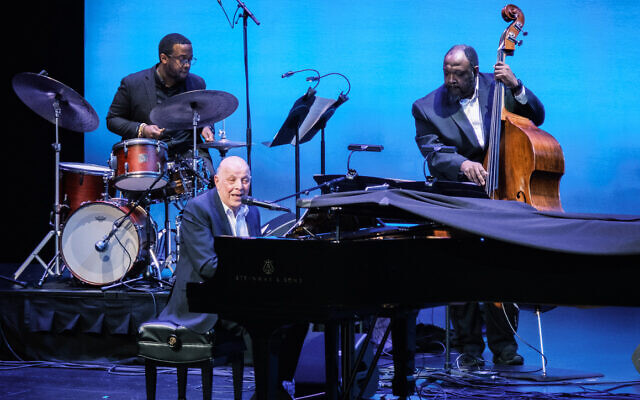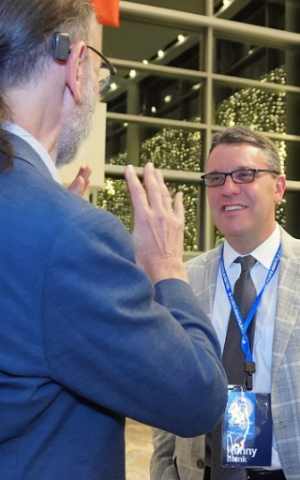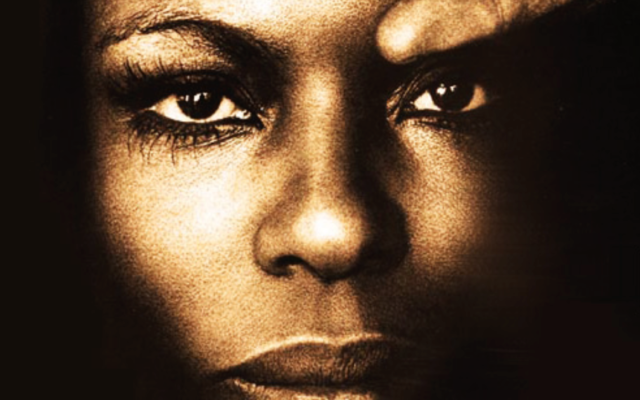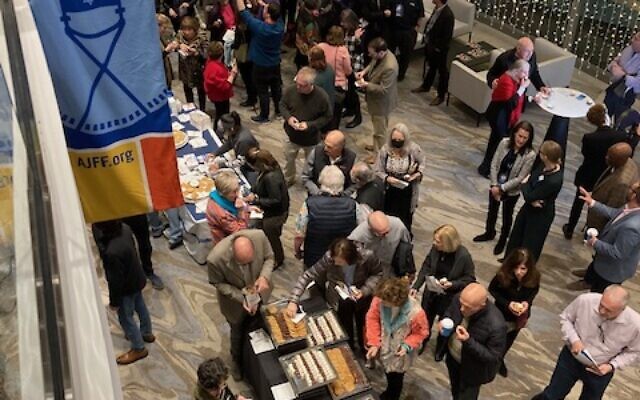AJFF Winds Up 2023 Edition on Positive Notes
Closing night film wins audience award and Tara Theatre gets a reprieve.

There was plenty to celebrate as the Atlanta Jewish Film Festival wound up its 23rd annual season with a closing night performance on Feb. 21 at the Sandy Springs Performing Arts Center. The featured film was “Killing Mw Softly With His Songs,” a documentary about the extraordinarily successful career of Hollywood composer, Charles Fox.
The film follows Fox from his childhood home on Sedgwick Avenue in the Bronx to his long-running success as a composer in Hollywood. The nearly two-hour-long documentary chronicles a 65-year career in which the son of immigrant parents, one of whom was an early sabra in Israel and another from the Orthodox shtetls of Poland, finds fame and fortune in the world of music. “Killing Me Softly With His Songs” could well have been subtitled, “Sixty-Five Years of Charles Fox’s Greatest Hits.”
His long career, which he narrates for the film, includes scores for more than 100 feature films, another 100 or so themes and background music for television sit-coms and game shows and the melodies for some of the biggest pop hits of the past century. Most notably is his 1973 hit by Roberta Flack, which is reflected in the film’s title, “Killing Me Softly.” It was written with lyrics by Norman Gimbel.

In an interview prior to the screening, Fox told me that music is always in his mind. That in his earlier days he could sometimes write for 36 hours at a stretch to meet the voracious appetite of the entertainment industry for new melodies.
“In my mind, I am always hearing music,” Fox said. “In my mind, I can hear an orchestra play. So, if I want a melody, I can hear a trumpet with a sax. I can hear a flute and a piccolo, an oboe, two bassoons. I just hear it.”
So it was only natural then, that the AJFF brought their annual festival to a close with a musical performance by the famed composer who charmed his Sandy Springs audience.
With the backing of a local quartet and two vocalists, he re-created for the enthusiastic audience his most popular numbers. The lengthy standing ovation by the closing night crowd helped to propel the lavishly produced and edited film to a win as the festival’s most popular documentary.
The enthusiasm for the evening’s entertainment could also be one indication of the resurgence of this year’s AJFF, which has struggled to maintain the attention of the film-going public during the pandemic. For the last two years, it has been forced to shift its programs from theater screens to home screens, from live audience participation to a mostly virtual schedule of showings.

To be sure, this year’s festival still offered 22 of its 40 feature films and documentaries for viewing at home. Still, there was a concerted effort to bring audiences back, not only in Sandy Springs, but at four other theaters in Midtown, Virginia-Highland, and East Cobb.
And, if the closing night was not a complete sell out, the healthy response by ticket buyers to the 13-day event was enough to convince Kenny Blank, the long-time executive director, and artistic head of the AJFF, that the festival had come through the pandemic in good health.
”The gratifying news is that the festival is still beloved. People love this festival and still have a strong connection and want to be engaged, and to look forward to it. And we’re thrilled with the programing offerings, the films and the conversations that happened around those films that that we were really most interested in.”

As if to underscore the AJFF’s return to traditional theater screenings, Blank used closing night to announce the rescue of the Tara Theatre on LaVista Road in Atlanta. It was closed last November when Cineworld Group LLC, a British company that owns Regal Theaters, the previous operator, declared bankruptcy.
Going forward, Chris Escobar, who, in recent years, also saved the old Plaza Theatre on Ponce De Leon Ave., will attempt to work his magic on the Tara.
Escobar is picking up the Tara at a time when the film theater industry is just beginning to emerge from a catastrophic period. Last month, Regal announced it was closing another 39 theaters as part of its bankruptcy reorganization.
Blank, however, said the initial response from local audiences in support of the Tara’s reopening has been strongly positive.
“Chris Escobar shared with me that they’ve already raised in pre-sales and donations close to $18,000 in the first 24 hours of their $50,000 fundraising campaign,” Blank said. “He and I are already talking about ways the AJFF can be part of that reopening, certainly for next year’s festival.”



comments